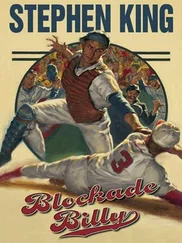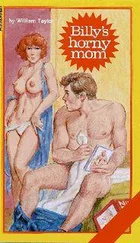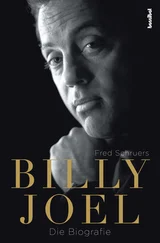William Ellis - Billy Sunday
Здесь есть возможность читать онлайн «William Ellis - Billy Sunday» — ознакомительный отрывок электронной книги совершенно бесплатно, а после прочтения отрывка купить полную версию. В некоторых случаях можно слушать аудио, скачать через торрент в формате fb2 и присутствует краткое содержание. Жанр: foreign_antique, foreign_prose, на английском языке. Описание произведения, (предисловие) а так же отзывы посетителей доступны на портале библиотеки ЛибКат.
- Название:Billy Sunday
- Автор:
- Жанр:
- Год:неизвестен
- ISBN:нет данных
- Рейтинг книги:3 / 5. Голосов: 1
-
Избранное:Добавить в избранное
- Отзывы:
-
Ваша оценка:
- 60
- 1
- 2
- 3
- 4
- 5
Billy Sunday: краткое содержание, описание и аннотация
Предлагаем к чтению аннотацию, описание, краткое содержание или предисловие (зависит от того, что написал сам автор книги «Billy Sunday»). Если вы не нашли необходимую информацию о книге — напишите в комментариях, мы постараемся отыскать её.
Billy Sunday — читать онлайн ознакомительный отрывок
Ниже представлен текст книги, разбитый по страницам. Система сохранения места последней прочитанной страницы, позволяет с удобством читать онлайн бесплатно книгу «Billy Sunday», без необходимости каждый раз заново искать на чём Вы остановились. Поставьте закладку, и сможете в любой момент перейти на страницу, на которой закончили чтение.
Интервал:
Закладка:
As we approach the development of the unique work of Billy Sunday, which is without a parallel in the history of evangelism, we must reckon with those forces which developed his personality and trace the steps which led him into his present imperial activity. For he has gone forward a step at a time.
He followed the wise rule of the rescue mission, that the saved should say so. At the very beginning he began to bear testimony to his new faith. Wherever opportunity offered he spoke a good word for Jesus Christ. In many towns and cities his testimony was heard in those early days; and there was not a follower of the baseball game who did not know that Billy Sunday was a Christian.
The convert who does not join a church is likely soon to be in a bad way; so Sunday early united with the Jefferson Park Presbyterian Church, Chicago. He went into religious activity with all the ardor that he displayed on the baseball field. He attended the Christian Endeavor society, prayer-meeting and the mid-week church service. This is significant; for it is usually the church members who are faithful at the mid-week prayer-meetings who are the vital force in a congregation.
Other rewards than spiritual awaited Sunday at the prayer-meeting; for there he met Helen A. Thompson, the young woman who subsequently became his wife. Between the meeting and the marriage altar there were various obstacles to be overcome. Another suitor was in the way, and besides, Miss Thompson's father did not take kindly to the idea of a professional baseball player as a possible son-in-law, for he had old-fashioned Scotch notions of things. "Love conquers all," and in September, 1888, the young couple were married, taking their wedding trip by going on circuit with the baseball team.
Mrs. Sunday's influence upon her husband has been extraordinary. It is a factor to be largely considered in any estimate of the man. He is a devoted husband, of the American type, and with his ardent loyalty to his wife has complete confidence in her judgment. She is his man of affairs. Her Scotch heritage has endowed her with the prudent qualities of that race, and she is the business manager of Mr. Sunday's campaigns. She it is who holds her generous, careless husband down to a realization of the practicalities of life.
He makes no important decisions without consulting her, and she travels with him nearly all of the time, attending his meetings and watching over his work and his personal well-being like a mother. In addition Mrs. Sunday does yeoman service in the evangelistic campaigns.
The helplessness of the evangelist without his wife is almost ludicrous: he dislikes to settle any question, whether it be an acceptance of an invitation from a city or the employment of an additional worker, without Mrs. Sunday's counsel. Frequently he turns vexed problems over to her, and abides implicitly by her decision, without looking into the matter himself at all.
Four children – Helen, George, William and Paul – have been born to the Sundays, two of whom are themselves married. The modest Sunday home is in Winona Lake, Indiana. When Mrs. Sunday is absent with her husband, the two younger children are left in the care of a trusted helper. The evangelist himself is home for only a short period each summer.
Mrs. Sunday was the deciding factor in determining her husband to abandon baseball for distinctively religious work. A woman of real Scotch piety, in the time of decision she chose the better part. Her husband had been addressing Y. M. C. A. meetings, Sunday-schools and Christian Endeavor societies. He was undeniably a poor speaker. No prophet could have foreseen the present master of platform art in the stammering, stumbling young man whose only excuse for addressing public meetings was the eagerness of men to hear the celebrated baseball player's story. His speech was merely his testimony, such as is required of all mission converts.
If Sunday could not talk well on his feet he could handle individual men. His aptness in dealing with men led the Chicago Young Men's Christian Association to offer him an assistant secretaryship in the department of religious work. It is significant that the baseball player went into the Y. M. C. A. not as a physical director but in the distinctively spiritual sphere. He refused an invitation to become physical director; for his religious zeal from the first outshone his physical prowess.
Those three years of work in the Chicago Association bulk large in the development of the evangelist. They were not all spent in dealing with the unconverted, by any means. Sunday's tasks included the securing of speakers for noon-day prayer-meetings, the conducting of office routine, the raising of money, the distribution of literature, the visiting of saloons and other places to which invitations should be carried, and the following up of persons who had displayed an interest in the meetings. Much of it was sanctified drudgery: but it was all drill for destiny. The young man saw at close range and with particular detail what sin could do to men; and he also learned the power of the Gospel to make sinners over.
The evangelist often alludes to those days of personal work in Chicago. Such stories as the following have been heard by thousands.
"While I was in the Y. M. C. A. in Chicago I was standing on the corner one night and a man came along with his toes sticking out and a ragged suit on and a slouch hat and asked me for a dime to get something to eat. I told him I wouldn't give him a dime because he would go and get a drink. He said, 'You wouldn't let me starve, would you?' I told him no, but that I wouldn't give him the money. I asked him to come to the Y. M. C. A. with me and stay until after the meeting and I would take him out and get him a good supper and a bed. He wanted me to do it right away before going to the Y. M. C. A., but I told him that I was working for someone until ten o'clock. So he came up to the meeting and stayed through the meeting and was very much interested. I saw that he used excellent language and questioned him and found that he was a man who had been Adjutant General of one of the Central States and had at one time been the editor of two of the biggest newspapers.
"I went with him after the meeting and got him a supper and a bed and went to some friends and we got his clothes. I asked him if he had any relatives and he said he had one son who was a bank cashier but that he had disowned him and his picture was taken from the family album and his name was never spoken in the house, all because he was now down and out, on account of booze.
"I wrote to the boy and said, 'I've found your father. Send me some money to help him.'
"He wrote back and said for me never to mention his father's name to him again, that it wasn't ever spoken around the house and that his father was forgotten.
"I replied: 'You miserable, low-down wretch. You can't disown your father and refuse to help him because he is down and out. Send me some money or I will publish the story in all of the papers.' He sent me five dollars and that's all I ever got from him. I took care of the old man all winter and in the spring I went to a relief society in Chicago and got him a ticket to his home and put him on the train and that was the last I ever saw of him."
"I stood on the street one Sunday night giving out tickets inviting men to the men's meeting in Farwell Hall. Along came a young fellow, I should judge he was thirty, who looked prematurely old, and he said, 'Pard, will you give me a dime?'
"I said, 'No, sir.'
"'I want to get somethin' to eat.'
"I said, 'You look to me as though you were a booze-fighter.'
"'I am.'
"'I'll not give you money, but I'll get your supper.'
"He said, 'Come on. I haven't eaten for two days.'
Читать дальшеИнтервал:
Закладка:
Похожие книги на «Billy Sunday»
Представляем Вашему вниманию похожие книги на «Billy Sunday» списком для выбора. Мы отобрали схожую по названию и смыслу литературу в надежде предоставить читателям больше вариантов отыскать новые, интересные, ещё непрочитанные произведения.
Обсуждение, отзывы о книге «Billy Sunday» и просто собственные мнения читателей. Оставьте ваши комментарии, напишите, что Вы думаете о произведении, его смысле или главных героях. Укажите что конкретно понравилось, а что нет, и почему Вы так считаете.












